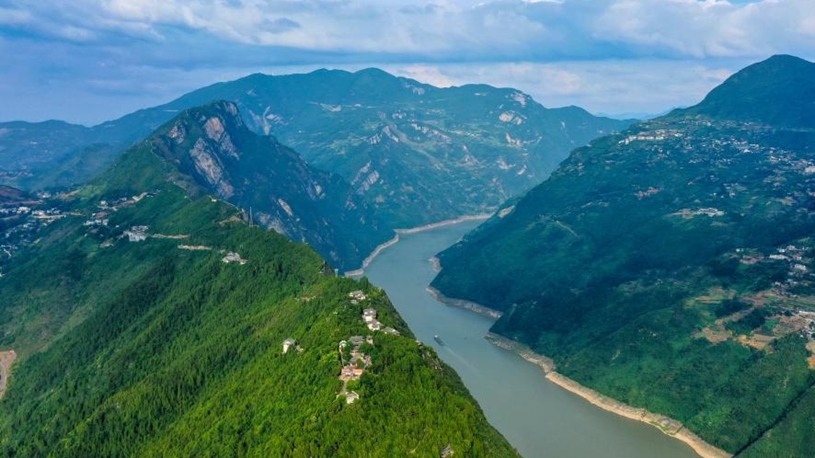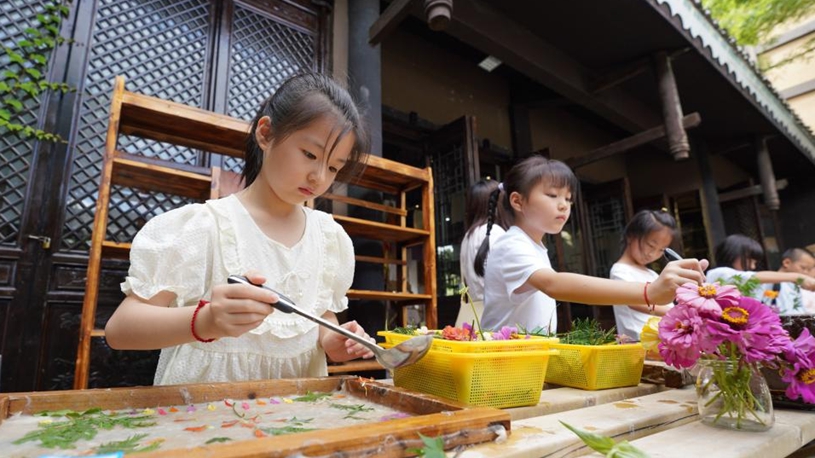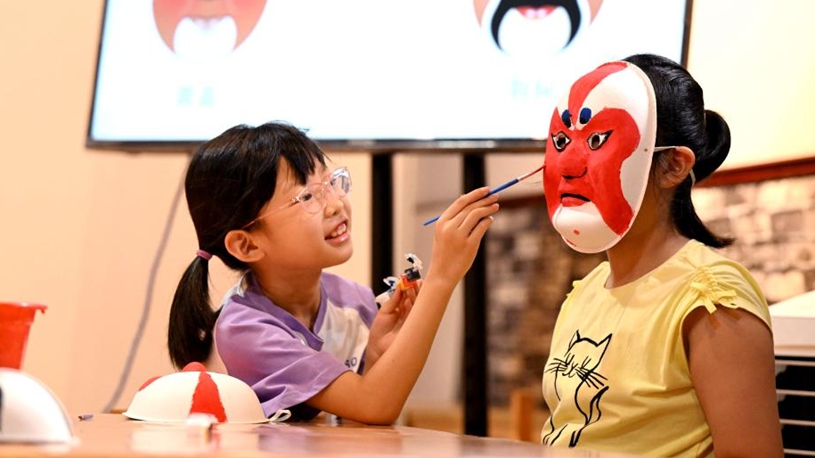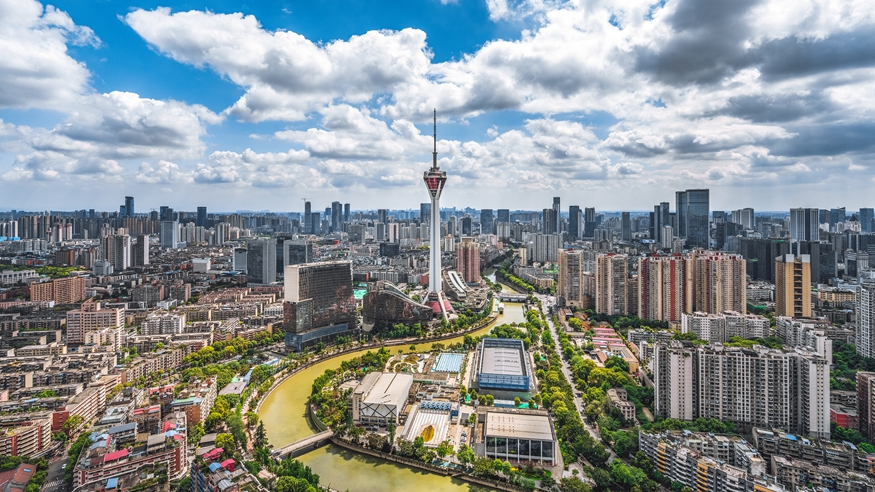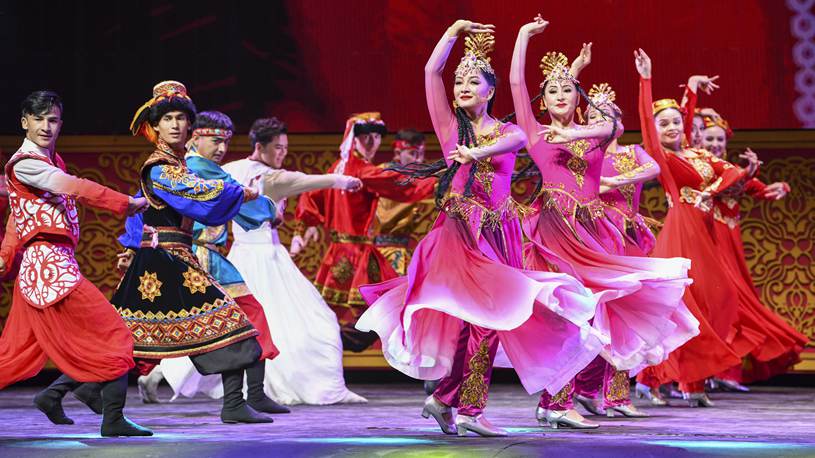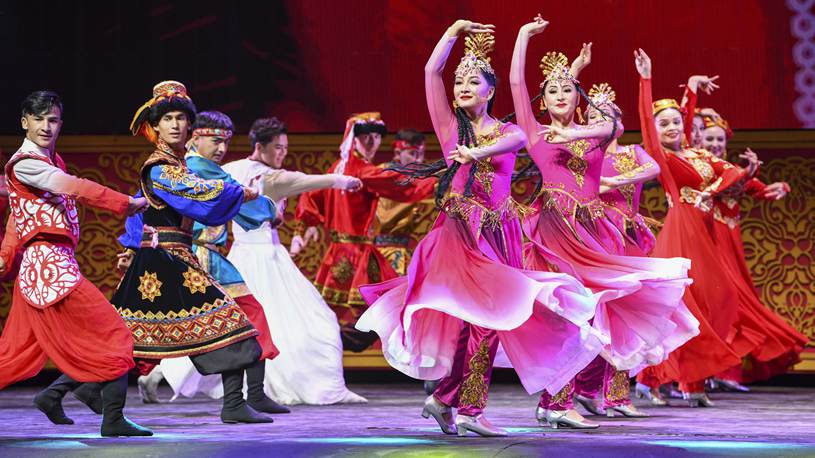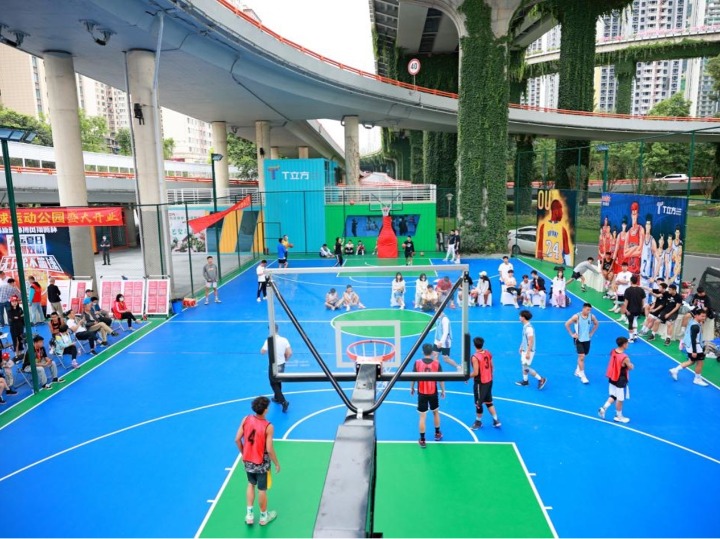
People play basketball under an overpass in Chengdu, southwest China's Sichuan Province. (Photo provided by Chengdu Sports Bureau)
In Chengdu, a bustling city with a population exceeding 20 million, miniature sports fields spring up in every nook and corner.
CHENGDU, China, July 22 (Xinhua) -- Picture this: you're enjoying tasty skewers in a hot pot, and glancing over to a table 30 feet away where two individuals are deeply engrossed in a game of table tennis, sweat pouring down their faces.
Such scenes unfold daily in Chengdu, a bustling city with a population exceeding 20 million. Amid this thriving metropolis, miniature sports fields spring up in every nook and corner.
At the break of dawn on a sweltering summer day at 6:30 a.m., 52-year-old Zhou Kaisheng and his friends are already queued up in front of the ping-pong table at the community center on Chadianzi Street, itching to flaunt their skills.
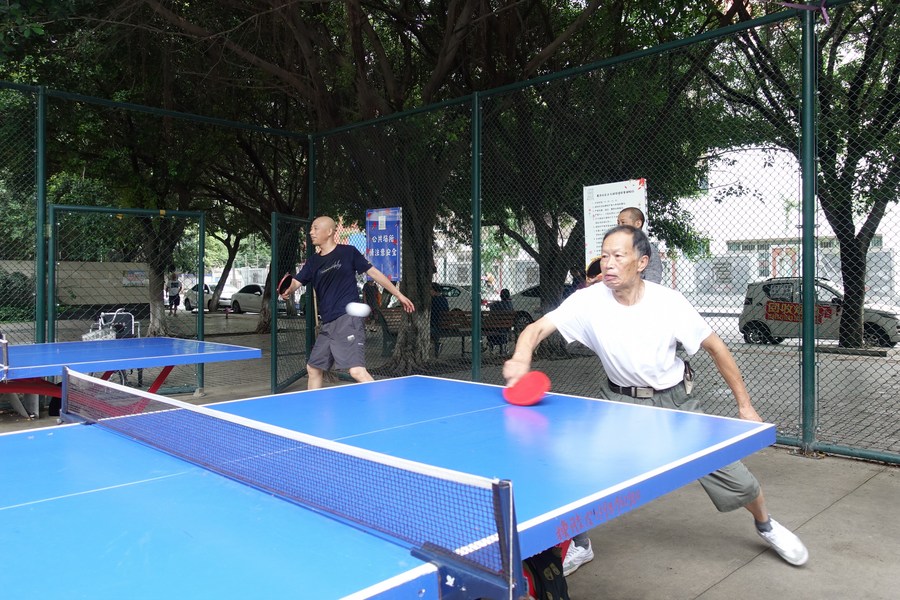
Residents play table tennis in a sports space in Shuxi Community, Chengdu. (Xinhua/Yuan Qiuyue)
This sports corner is representative of Chengdu's innovative drive to utilize urban "surplus space," supplementing public fitness facilities for all residents.
An official from the Chengdu Sports Bureau disclosed to Xinhua that since 2021, sparked by hosting the 31st Universiade, Chengdu has actively encouraged and assisted communities in repurposing urban "surplus space" such as underpasses, underground areas, rooftops, and other accessible spots within neighborhoods to construct and refurbish sports venues, thus promoting athletic activities.
To date, Chengdu has completed the construction of 186 community sports corners that are diverse, fully-equipped, and readily accessible. The total area of newly built and renovated sports venues has reached 930,000 square meters.
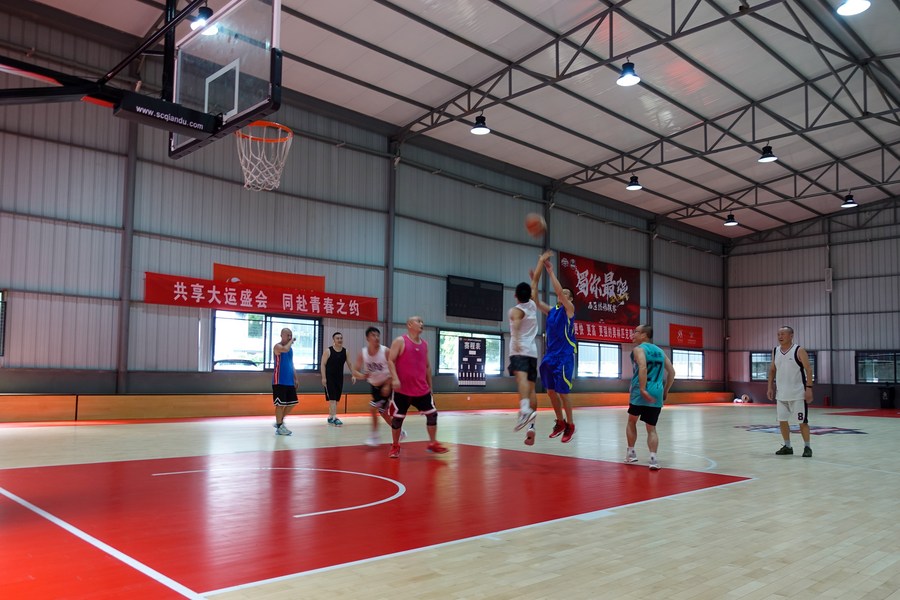
Residents play basketball in a gym in Shuxi Community, Chengdu. (Xinhua/Yuan Qiuyue)
Compared to vast squares and parks, these corners and nooks are areas residents frequent daily. With the introduction of community sports facilities, participation in sports activities has surged.
"In the past, climbing stairs would leave me 'winded.' I had to take deep breaths when ascending to the fourth floor. But now, I can climb to the seventh floor without feeling winded!" Zhou confessed. Before the installation of ping-pong tables in his neighborhood, he rarely engaged in physical activities and frequently fell ill. The addition of sports facilities to his community ignited a newfound joy in sports and led to a noticeable improvement in his health.
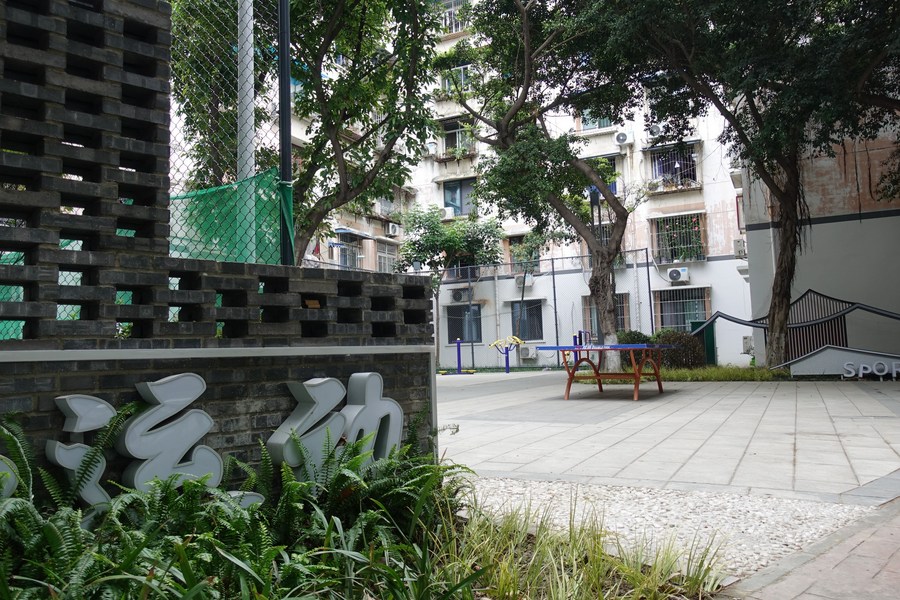
This photo shows a sports space on Chadianzi Street, Chengdu. (Xinhua/Yuan Qiuyue)
The city also advocates investment in a public-interest operation model, combining free and low-cost services to promote efficient use and sustainable development of sports facilities.
Shuxi Community on Jinquan Street enlisted a third-party enterprise to refurbish a community sports center, encompassing an area of approximately 3,600 square meters. This includes ping-pong tables, basketball courts, and badminton courts, available to the public for free or at a minimal cost.
"We used to play on 'dusty' courts, but the conditions are significantly improved now. On weekdays, from 9 a.m. to 12 p.m., it's all free," noted Zhang Shaobo, a resident of Shuxi Community for over a decade.
Zhang Yan, an official from Shuxi Community, noted that initially, some residents felt that the sports spaces encroached on their public areas. However, through ongoing resident meetings, all parties' needs were met and addressed.
"Now, more and more residents are willing to participate in sports, and everyone applauds the changes," Zhang remarked. ■

